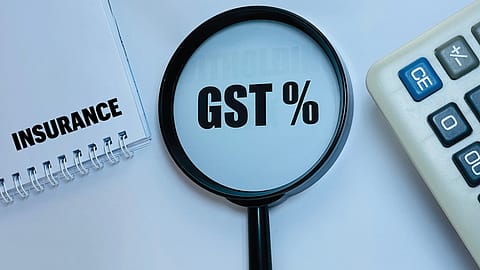Industry divided on impact of zero GST: Life insurers calm, health insurers wary
It is essential to note that each insurer will be affected differently by the GST exemption and the lack of ITC.

The GST Council’s decision to reduce the tax rate on individual life and health insurance policies to zero per cent is a good move that will benefit consumers and help drive wider insurance penetration. Health and life insurance are increasingly being recognised as essential safeguards for ensuring the financial security of Indians. Thus, the move is expected to significantly lower premiums, making protection products more affordable and accessible for millions.
Balachander Sekhar- CEO, RenewBuy, says, "Insurers are seeking some clarity on Input Tax Credit (ITC) treatment for their expenses under the new structure. The removal of the ITC exemption on insurance premiums could lead to a slight increase in the base premium for consumers, as certain costs may remain unabsorbed. The inclusion of the Input Tax Credit would keep premiums affordable for consumers and allow insurers to utilise the ITC, thereby maintaining sustainable operations."
However, it is essential to note that each insurer will be affected differently by the GST exemption and the lack of ITC. In fact, a standalone insurer will be affected more than multi-line insurance companies.
According to Kotak Institutional Equities, the tax rate change will impact Niva Bupa (~4%) more than Star Health (~1%), due to higher expenses and a higher ceding ratio. Niva Bupa's end-of-month ratio is 39% versus 31%, and its ceding ratio is 22% versus 7%, resulting in higher GST payments that input tax credits can't offset, as GST on retail health policies is now 0%. Care Health Insurance will need to raise premiums by about 2%.
Arun Ramamurthy, Co-founder, Staywell.Health, said, "Several standalone insurers and industry councils have already opened discussions with policymakers to reconsider the impact of Input Tax Credit (ITC) removal."
However, according to reports, life insurance companies have dismissed concerns over the impact of the Goods and Services Tax (GST) exemption on input tax credit, stating that they have strategies in place to manage the situation." At the same time, other insurers are also developing strategies to mitigate the cost of ITC. They might approach if things don't work out.
"In my view, the industry’s ask should go beyond margin protection and focus on the long-term sustainability of protection products. If GST 2.0 is meant to drive financial inclusion, ITC reform must go hand in hand with affordability and consistent tax treatment, said Paramdeep Singh, a financial services veteran with experience at insurance companies such as GE Money and SBI Life.
Recommended Stories
What insurers may propose
Rather than opposing the exemption, insurers are seeking technical reclassification. "For instance, replace full exemption with a 12% GST slab with ITC eligibility. Or, reclassify insurance as a zero-rated supply, preserving ITC benefits. The Life Insurance Council has also urged zero GST on agents’ commissions to ease cost pressures," explained Ramamurthy.
According to other experts, a potential middle ground could be to move insurance to a zero-rated GST slab, which would retain ITC eligibility while keeping it affordable for consumers.
A clarification will help insurers maintain stable premiums and pass on savings fairly to consumers. Ultimately, it will ensure the GST reform achieves its main goal: making insurance more affordable, accessible, and sustainable for all Indian households," said Chetan Vasudeva, Senior Vice President – Business Development at Elephant.in, Alliance Insurance Brokers.
(INR CR)